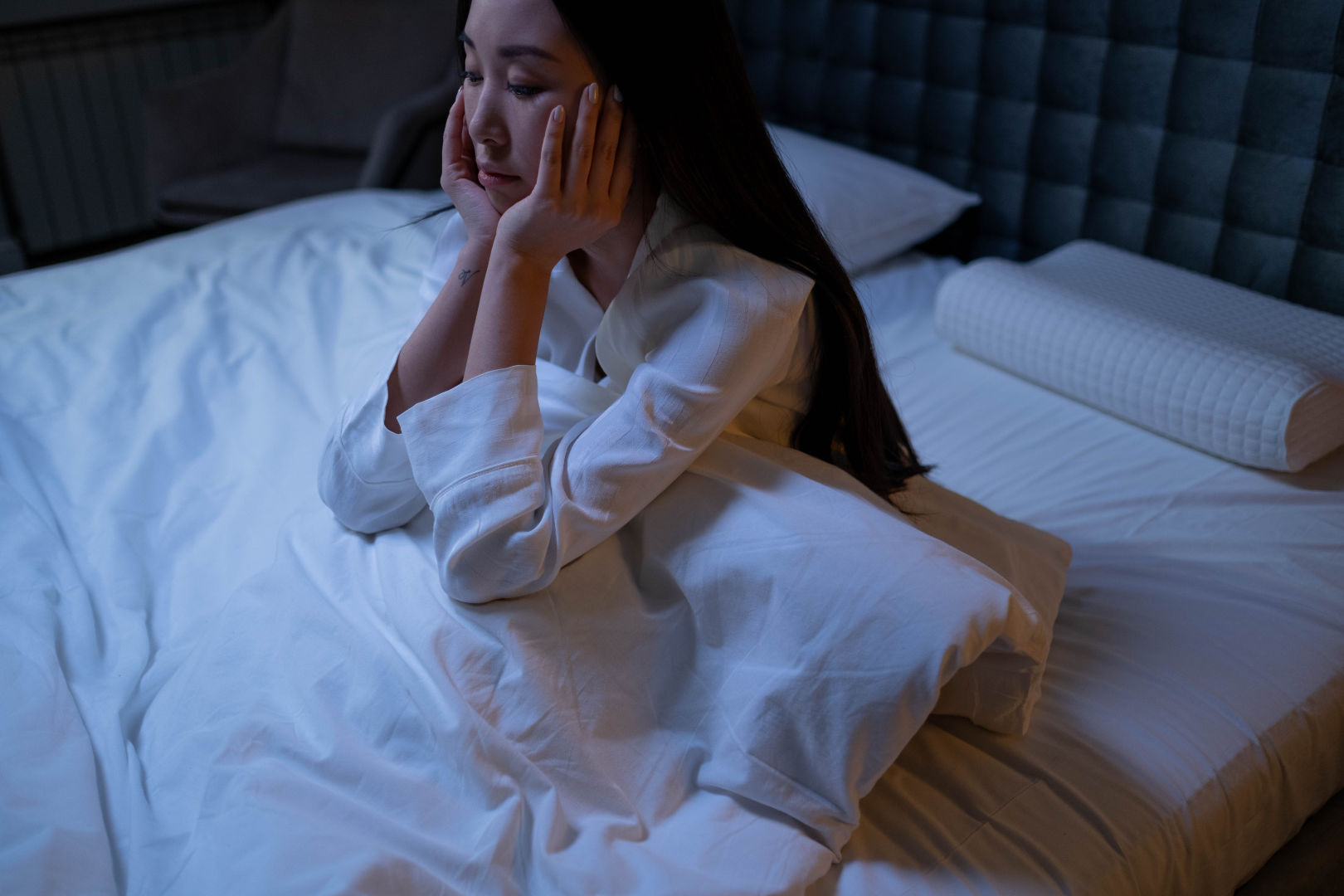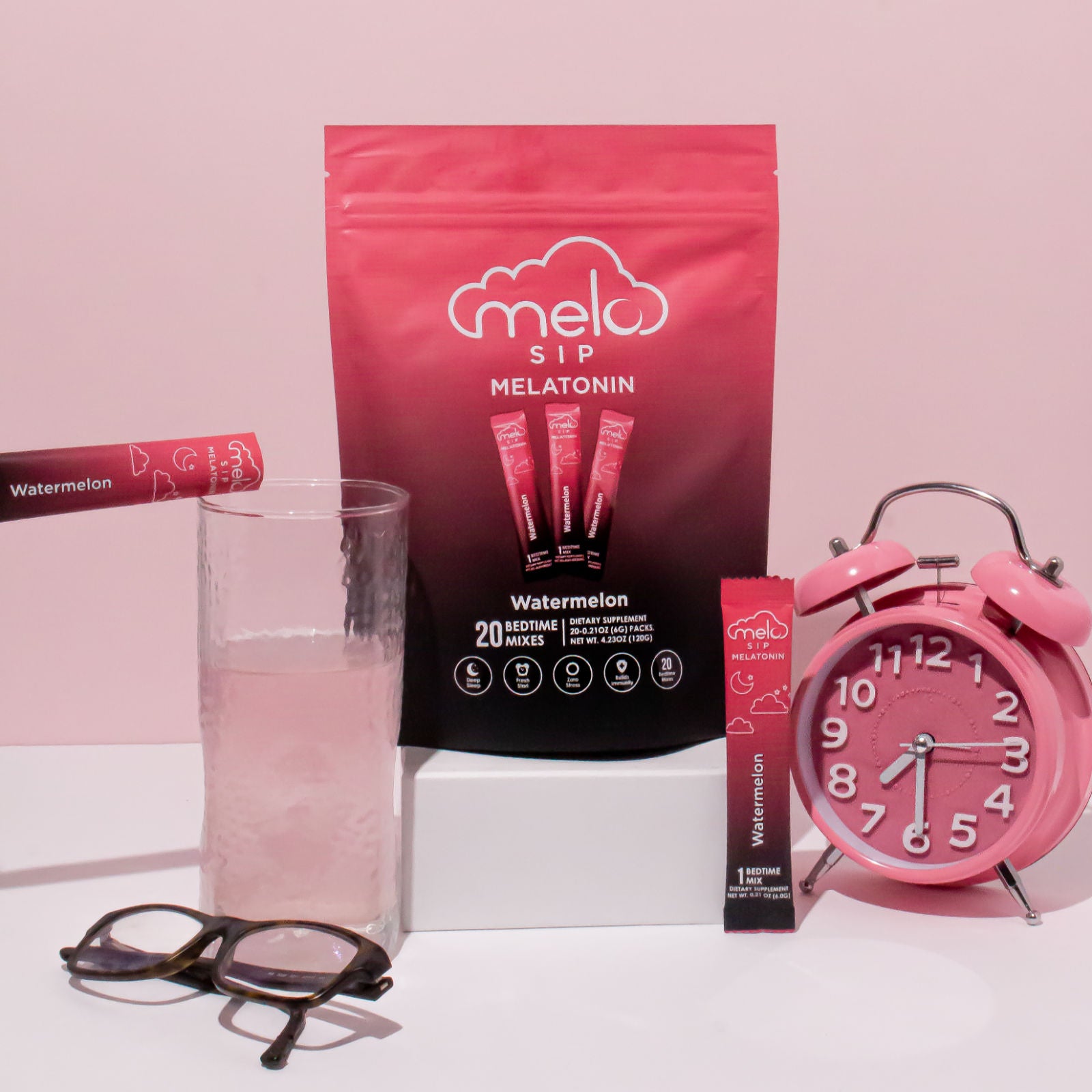
Can You Take Melatonin With Ibuprofen
If you Google “Can you take melatonin with ibuprofen,” you may notice different sources don’t have the same answer. Some say they have no interaction, but others say they can seriously affect each other.
In this article, we’ll cut through the confusion and show you what happens when you take melatonin with ibuprofen. We’ll also discuss some known melatonin drug interactions, and talk about some alternative painkillers you can use alongside melatonin.
And by the way, if you happen to be looking for the most effective, fast-acting melatonin supplements available, you’re in the right place. At MELO Labs, we weren’t satisfied with the melatonin supplements on the market, so we made our own. Specifically, our MELO Air melatonin vape works in as little as 15 minutes, so you can take it right before bed.
At a glance:
Can You Take Melatonin With Ibuprofen?

The short answer is yes, you can. According to St. Luke’s Health, there are no known interactions between ibuprofen and melatonin. This is also confirmed by multiple online drug encyclopedias. So, taking melatonin alongside ibuprofen is very unlikely to cause any adverse reactions.
That said, some evidence suggests ibuprofen might affect natural melatonin levels, as we’ll see in the next section. Keep in mind melatonin is a hormone your body produces, not a drug. The brain’s pineal gland releases melatonin in the evening when the sun goes down (or when the brain perceives darkness). It plays a crucial role in regulating our circadian rhythm (body clock).
What Happens When You Take Melatonin With Ibuprofen

A study from Physiology and Behavior found that NSAIDs (nonsteroidal anti inflammatory drugs), specifically ibuprofen and aspirin, could lower natural melatonin levels.
In this study, which was actually a series of controlled experiments, a total of 75 participants were tested in multiple experimental settings. In some cases, people were given both a placebo and one of the NSAID drugs at different points in time. In other cases, people were randomly split into placebo and NSAID groups and then compared to each other.
When measuring melatonin levels, researchers used a “within-subjects” experimental design, meaning the same group of people took both NSAIDs and placebos and were tested at different points in time. The researchers found melatonin levels to be lower after participants had taken NSAID drugs than after they had taken a placebo.
As the researchers explain, NSAIDs are known to suppress production of prostaglandins, a group of compounds involved in melatonin production, body temperature, and sleep (among other things). This could explain why NSAIDs like ibuprofen have the potential to lower natural melatonin levels.
Additionally, the researchers also found NSAIDs to affect body temperature at night. Normally, our body temperatures drop a few degrees at night. This is related to melatonin production. A study from the journal Molecules explains that colder temperatures help to induce melatonin production.
This could explain another potential avenue through which NSAIDs inhibit melatonin production. Apart from any direct effect they may have on melatonin production, they can also prevent our body temperature from lowering as much as usual at night, which in turn could inhibit melatonin production further.
So, what actually happens when we take ibuprofen with melatonin? It’s possible the ibuprofen could make melatonin a little less effective. But combining the two shouldn’t have any other negative side effects.
Since it won’t cause any adverse effects, taking melatonin and ibuprofen together could be worth trying to see how the combination affects you. It’s always a good idea to try them separately first though, to see how each one individually affects you, and to consult with your doctor if you’re considering trying both at the same time.
Melatonin Drug Interactions

Though melatonin itself is considered a dietary supplement, and not a drug, it can interact with certain drugs. According to the Mayo Clinic, melatonin may have possible interactions with blood pressure medications, birth control pills, immunosuppressants, diabetes medications, and central nervous system depressants (and potentially other strong sleep aids).
Some antidepressants, such as selective serotonin reuptake inhibitors, are also known to inhibit melatonin production and potentially increase insomnia (according to a study from the World Journal of Biological Psychiatry).
Natural Ibuprofen Alternatives to Take With Melatonin

If you’re thinking about taking ibuprofen with melatonin, we’re guessing that you’re dealing with some combination of insomnia and physical pain. For instance, maybe you’re traveling, and you’re experiencing jet lag (a disruption to your circadian rhythm) as well as some residual pain from being crammed into a tiny airplane seat.
In situations like this, melatonin works great. It’s ideal for treating insomnia caused by a change to your sleep schedule, such as jet lag. But what to do about the pain? Melatonin isn’t a natural painkiller, so you may want to supplement it with something when also dealing with aches and pains. Let’s look at some natural painkillers you can take with melatonin for situations when you’d rather avoid a drug.
Conveniently, all the following natural remedies for pain (and more) can be found in MELO Sip, so it’s a great all-in-one option for when you need to treat both sleep issues and pain.
Valerian Root
Valerian root is sometimes known as nature’s tranquilizer, because of the powerful relaxation effects it induces. Scientific research suggests it can be a safe and effective painkiller. For instance, a study from the International Journal of Gynecology and Obstetrics found valerian root could significantly reduce pain symptoms from severe menstrual cramps.
The researchers hypothesize this could be a result of valerian root’s known antispasmodic effects, meaning it has the ability to inhibit muscle spasms. It significantly reduces muscle tension and promotes physical relaxation, making it a great option for treating pain.
Chamomile
Chamomile is another herbal remedy with a wide variety of uses, but it is mainly used for its relaxing effects. According to a study from Molecular Medicine Reports, chamomile can be an effective treatment for arthritis, back pain, and stomach cramps, among many other pain-related conditions. Chamomile is also an effective treatment for insomnia.
GABA
Gamma-aminobutyric acid, or GABA, is a neurotransmitter. It blocks certain functions of the central nervous system and has an overall calming effect, according to the Cleveland Clinic.
As a study from Current Drug Targets explains, GABA has analgesic (painkilling) properties. It is also widely used to treat anxiety, muscle spasms, and other conditions related to overactivity in the central nervous system. GABA can also improve sleep.
Try MELO Labs for All Your Melatonin Needs

As we’ve seen, taking ibuprofen with melatonin is generally considered safe. There’s very little risk of an adverse reaction from combining the two substances. However, ibuprofen may affect the body’s natural melatonin levels, which in turn may make melatonin supplements a little less effective.
For this reason, you might want to try a different painkiller when taking melatonin. Instead of opting for a drug, it may be safer to go with an herbal remedy or natural biological compound, as these are even less likely to cause an interaction.
Our liquid melatonin supplement, MELO Sip, provides about 4 mg of melatonin per serving, but it also includes chamomile extract, valerian root extract, GABA, l-theanine, and a variety of sleep-enhancing vitamins and minerals. Altogether, these ingredients deliver a powerful boost of relaxation and tension relief in addition to inducing sleep.
What’s more, liquid supplements are much more fast-acting and bioavailable than pills, according to an article from Medicare Europe. So, MELO Sip could be even more effective than taking melatonin pills alongside valerian root pills, GABA pills, etc. But for an even more fast-acting option, you may be interested in trying melatonin vaporizers.
Our melatonin vaporizer, MELO Air, is safe, effective, and extremely fast-acting. It has only three ingredients: melatonin, organic vegetable glycerin, and natural flavors. It contains no nicotine, THC, vitamin E acetate, nor any other substance known to be harmful when inhaled. And it comes in a wide variety of highly-rated flavors.

Leave a comment